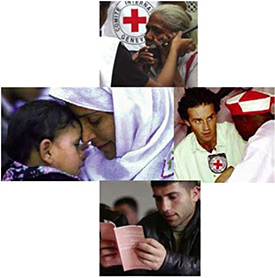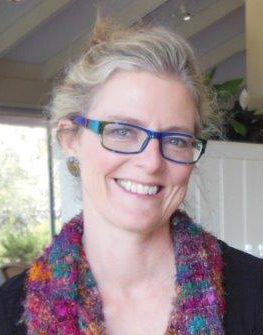
By Leslie A. Gordon
For the second year in a row, Berkeley Law will host a one-of-a-kind workshop for students interested in the field of International Humanitarian Law (IHL).
Over four days during Martin Luther King weekend (Jan. 17-20), students from more than 12 law schools, along with scholars, policymakers and practitioners, will congregate to study the law of armed conflict. The International Humanitarian Law Workshop for Students is a partnership between the law school’s Miller Institute for Global Challenges and the Law, a global policy center focused on promoting the rule of law and human rights, and the International Committee of the Red Cross (ICRC), which provides humanitarian help for people affected by armed violence worldwide.
Berkeley Law has partnered with the ICRC on several projects, including a workshop and seminar on cyber warfare. Their collaboration on the student workshop “builds on Berkeley’s strength in international law,” said Lecturer in Residence Kate Jastram, faculty director of the Miller Institute and the driving force behind the workshop.
Led by legal professionals from the ICRC, attorneys for the U.S. military, and law professors who specialize in international humanitarian law, the workshop will combine lectures with hands-on exercises. Topics include determining when international humanitarian law applies to conflict, internment and detention, and non-international armed warfare. Experts will also examine how terrorism intersects with international humanitarian law and the definition of protected persons.
The program culminates in a simulated congressional hearing on the killing of Anwar al-Awlaki, a U.S. citizen who was killed in a drone attack in Yemen. In the simulation, students will serve as representatives of the State and Defense Departments, human rights NGOs, and as U.S. senators. “It’s an engaging way to grapple with this material,” Jastram said.

Among the applicants, 45 students from across the country, including 13 from Berkeley Law, were accepted into the workshop. “It was a competitive process,” Jastram noted. “We’re looking for advanced law students—some are getting their LL.M. or joint Ph.D.’s—who’ve already shown an interest in the law of armed conflict. This workshop will raise their knowledge level a notch and also give them the opportunity to connect with lawyers from the ICRC and the military, as well as civilian law professors. “It’s an addition to their professional tool kit.” Students will receive a Certificate of Completion from the ICRC.
Some of the workshop students are hoping to go directly into the JAG Corps or other government agencies like the State Department; others are planning careers in human rights or academia. For anyone interested in international legal work, this is “an important body of law,” Jastram explained. “There’s so much debate, even on fundamental questions.”
Second-year student Talia Nissimyan attended last year’s workshop because she wanted to “begin writing about the legal issues related to armed conflict and national security as soon as possible,” she said. “I thought the workshop would be a great way to build a foundational knowledge of the primary issues.” That proved true. What she learned in the workshop “has already come in handy in my own research projects,” Nissimyan said.
Third-year student Saba Ahmed, who also attended last year’s workshop, appreciated the diverse faculty, who had different ideological views on how IHL applied to specific circumstances such as drone strikes and the internment and detention of POWs and non-POWs. “It was great to hear legally grounded justifications for such policy decisions,” Ahmed said. This year’s faculty includes alumnus Major Patrick Walsh ’98, a U.S. Army National Guard professor at the U.S. Army Judge Advocate General’s Legal Center and School.
Student interest in the law of armed conflict has expanded since 9/11. “There’s so much scholarship, so many complex policy issues,” said Jastram, who teaches international humanitarian law, a course that, she said, is really “for anyone who wants to be a good citizen.”
New to the workshop this year: more opportunities for students to work in small groups with faculty. Last year’s format was more lecture-based, according to Jastram. “The small, intimate groups with scholars and practitioners results in intense learning. This is a great opportunity for students because the ICRC doesn’t run this workshop anywhere else.”